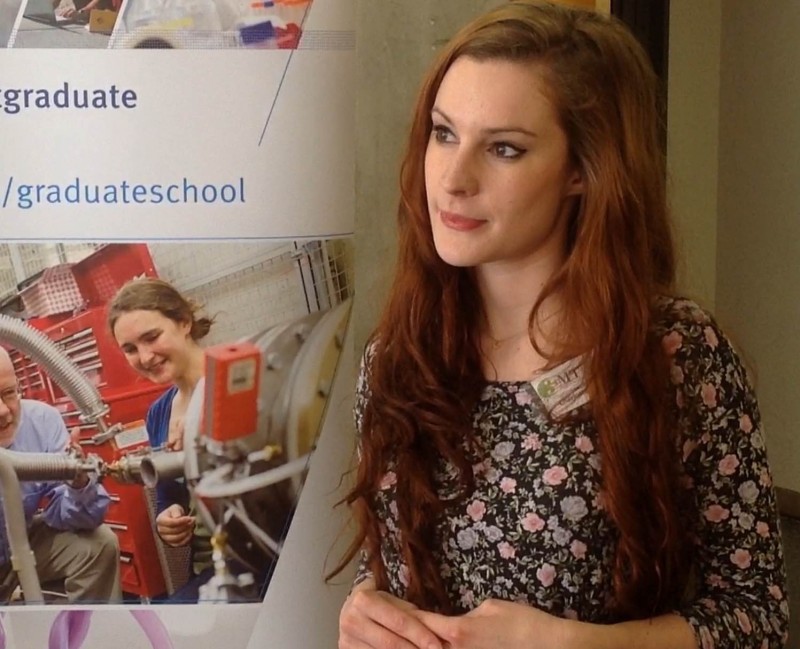Deborah Oakley
From damaged genes, to squashed light, to nano-scale solar cells; competitors at today’s Three Minute Thesis (#3MinuteThesis) competition had one thing in common. All of the speakers had just three minutes in which to cover three years of research, and for a non-specialist audience.
Eighteen PhD students battled it out at Imperial College London this afternoon. “Science communication is really important,” professor Tom Welton, Dean of Natural Sciences at the College, told the audience as he introduced the competition: “There’s no point knowing anything unless you can tell people about it.”
The judges awarded first place to Ryan Robinson, who explained his research on proteins that act as environmental sensors. Robinson has found that chemicals in diesel pollution can activate these proteins, and cause symptoms of respiratory disease.
He told us that it’s crucial to select carefully which information to present. “What’s important to your peers may not be important to the general public; you need to understand the difference.”
Charlotte Mykura, who is a second-year PhD student at the Clinical Sciences Centre in West London, was also competing. She spoke about her research on the protein molecules that together control the body’s cells. Mykura didn’t stumble. And she managed to avoid the jargon word “chromatid”, which had been one of her fears. Her mum came to watch. Margaret Mykura is a psychotherapist who studied biology at Kings College London. In the past, she’s struggled to understand Charlotte’s work. Today was better. “It was definitely clearer than when I’ve asked Charlotte about what she does.”

Charlotte Mykura gets out of the lab
“Science needs to be out there more,” Margaret said. “Sometimes it can seem scary and mysterious. But even if it’s complicated, it can be simple.”
Samuel Cooper was first to present. He came second in last year’s competition. Cooper told us why he’d come back. “It’s worthwhile investing in your presentation skills,” he said. “You can get a huge amount of information across in just three minutes, and if you don’t practice that you can spend an hour and not get anything across at all.”
The judges awarded second placed to Nisha Ranganathan, who is researching how to kill persistent bacteria. In third place was Laura-Ann McGill, whose imaging research has shown that in a common heart condition called Hypertrophic Cardiomyopathy the heart muscle cannot relax, and is instead stuck in contraction.
Mykura didn’t make it into the top three, but she’s signed up to do her talk again at the Imperial Festival on 9 and 10 May. After the event she told us it’s important to her to speak about science in public as much as she can: “I think I lose the ability to speak to humans, being in the lab so much.”
For further information, get in touch:
Susan Watts
Head of Public Engagement and Communications
MRC Clinical Sciences Centre
Du Cane Road
London W12 0NN
T: 0208 383 8247
M: 07982 142327
E:
Deborah Oakley
Science Communications Officer
MRC Clinical Sciences Centre
Du Cane Road
London W12 0NN
T: 0208 383 3774
E:
